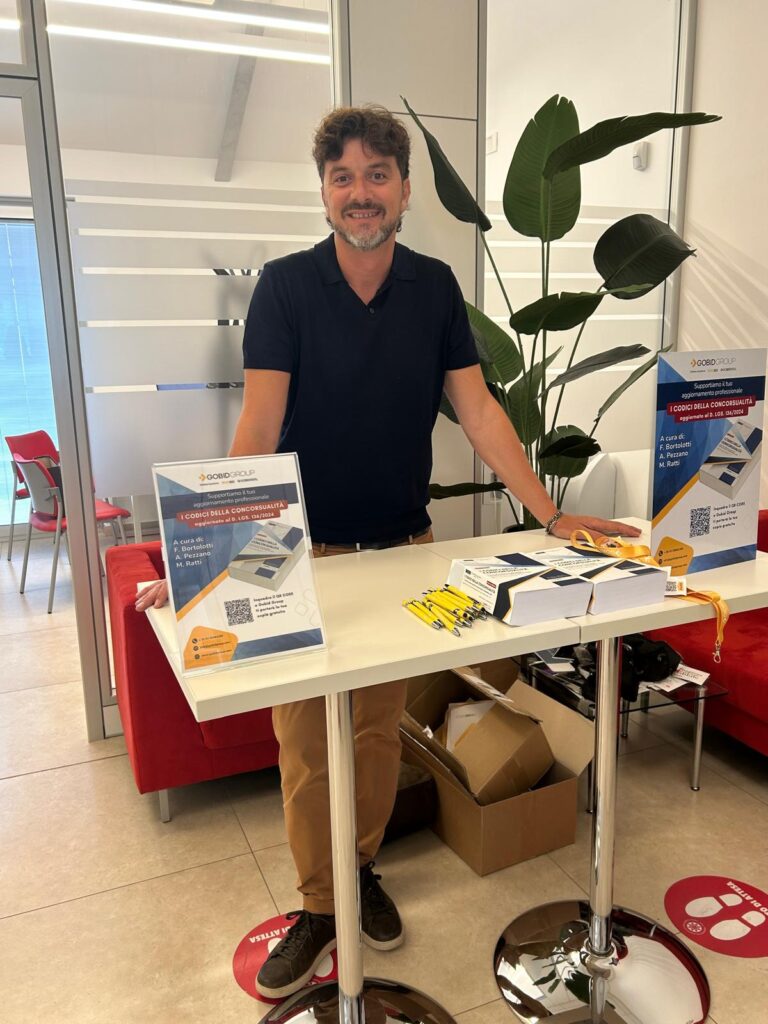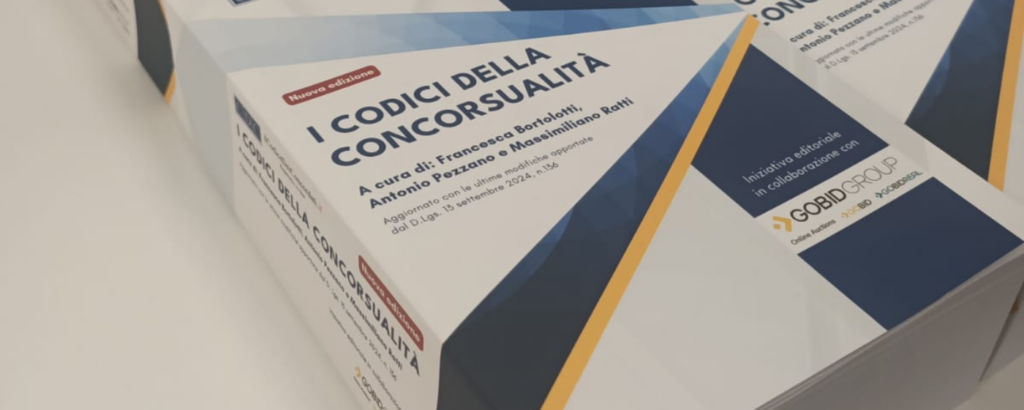On July 17th, the module of the OCC training course in Trani on managing over-indebtedness concluded, with Gobid Group participating as a sponsor. The entire course was organized by the Association of Chartered Accountants and Accounting Experts of Trani, in collaboration with its Foundation, the Trani Bar Association, and the Foundation of the Bar Association.
The central theme of the final session was controlled liquidation. On this occasion, Dr. Mariateresa Quinto – member of the Association’s board – shared her positive experience in entrusting sales procedures to Gobid Group, a solid and reputable partner.
This important recognition confirms the value of our work and the effectiveness of the relationships built locally with those who handle the most delicate phases of insolvency proceedings. In this regard, participating in high-level training events such as the one in Trani plays a key role.
Let’s now revisit the key topics covered during the final module held in this Apulian city, as we look forward to the next one scheduled to begin in September.
From Proceedings to Controlled Liquidation:
An Overview of the Training Course
The course module – valid for the biennial professional training of Crisis Managers pursuant to Ministerial Decree 202/2014 – was structured into five sessions, rich in practical and legal content. The first module, with a total duration of 12 hours, already took place as part of the Crisis Managers’ Update Course (Article 356 of the Italian Business Crisis and Insolvency Code) from March 7th to 31st, 2025. Legal and academic professionals sparked a lively, dynamic debate filled with insights and reflections throughout all the sessions.
The inaugural meeting on June 17th laid the institutional foundation for the course, delving into the organizational models of the OCC of Trani and the practical application of the principles outlined in the Crisis Code, with contributions from Professor Sabino Fortunato and local OCC representatives. On June 23rd, the focus shifted to the three debt crisis resolution procedures, with a comparative analysis of operational differences and eligibility conditions, led by academics and key magistrates. On June 30th, attention turned to the consumer debt restructuring plan, with a particular focus on tax and social security aspects. This topic underscored the importance of evaluating merit and the active role of the judge in the homologation process. On July 7th, the focus was on the simplified arrangement with creditors (concordato minore), with insights into the legal requirements and management of creditor classes. This training session was particularly useful for clarifying the operational role of the manager in building the agreement and managing negotiations.
Finally, on July 17th, the concluding session addressed the topic of controlled liquidation, covering every phase: from the inventory of assets to the drafting of the final report, with significant contributions on the judge’s role and the tax and social security aspects of the procedure.



Sharing Expertise, Strengthening the Network
Being present as a sponsor and partner at important and timely training events such as the OCC course in Trani means that Gobid Group is investing in building a solid network with professionals involved in insolvency proceedings. The positive testimony of Dr. Quinto is concrete proof that we are moving in the right direction: not only as a reliable player in judicial sales, but also as a point of reference for the professional and technical growth of the sector.
We continue to believe that only through dialogue, collaboration, and training can we create virtuous synergies in support of effective crisis management.
Want to stay informed about the topics that really matter to you?
Help us send you increasingly personalized communications tailored to your needs. Let us know your preferences!



















































